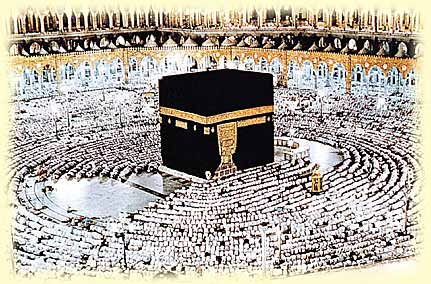Salman bin `Amir [radiaAllaahu anhu]
reported:
I heard the Prophet [صلى الله عليه وسلم] saying,
"When one of you
breaks his Saum (fasting), let him break it on dates; if he does not have any,
break his fast with water for it is pure.''
[Abu
Dawood]
Anas [radiAllaahu anhu]
reported:
“The Messenger of Allaah [صلى الله عليه وسلم] used
to break his Sawm (fast) before offering Maghrib (sunset) prayer with three
fresh dates; if there were no fresh dates, he will eat three dry dates; &
if there were no dry dates, he would take three draughts of water.”
[Abu Dawood & others, graded
authentic by Shaikh Al-Albani in Sahih Al-Jami' AS-Saghir, No.4995].
وَالَّذِينَ
كَفَرُوا يَتَمَتَّعُونَ وَيَأْكُلُونَ كَمَا تَأْكُلُ الْأَنْعَامُ وَالنَّارُ
مَثْوًى لَّهُمْ
"But those who disbelieve enjoy
themselves & eat as cattle eat, & the Fire will be their abode.”
[Surah
Muhammad: 12]








